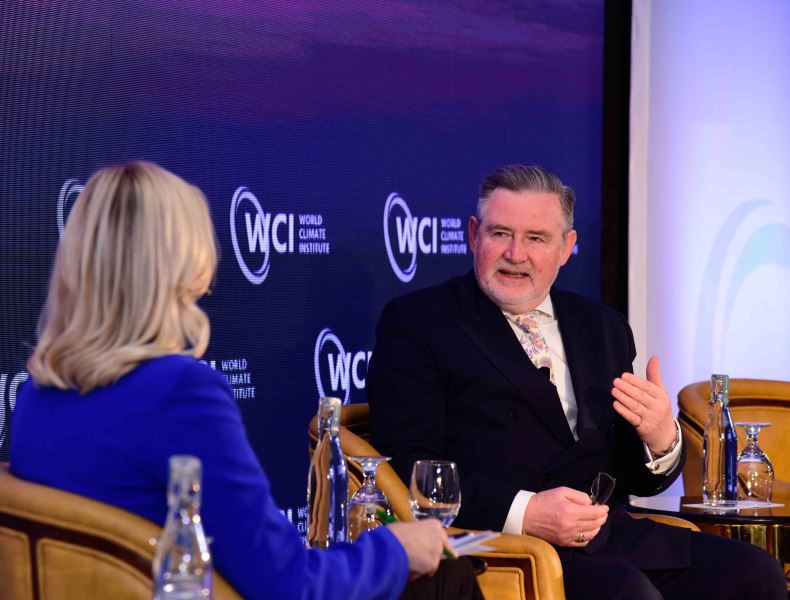
January 7, 2023
Keynote Speaker: Barry Gardiner, Member of Parliament, United Kingdom and Director, Climate Parliament
World leaders have been empowering initiatives and dialogues toward a low-carbon economy to further/boost climate action. With the world looking more and more to the south to lead on climate action and COP28 a year ahead, where do the future course of action and opportunities for collaboration lie?
The World Climate Institute’s first Global Dialogue Series on Climate Leadership hosted on 6 January 2023 in Ahmedabad, India kicked off on an incisive note around the leadership in the climate space. When asked to describe the current state of climate leadership in one word, Barry Gardiner termed it as ‘unscientific’. He added that as per scientists, there is a limit to the amount of emissions we release in the environment. However, the global leadership is acting as if we can stand up to the laws of physics. He further argued, we need to realise that we cannot argue with the planet. Additionally, the target setting mechanism vis-à-vis climate change mitigation commitments is a bit problematic. Often, either the targets which are set are not adequate, or when the targets are adequate; appropriate policies are not placed.
The world is already at the tipping point. Highlighting the impact of climate change in India, he pointed out the heatwaves and droughts the country has been experiencing. Additionally, India has lost 70 million hectares of productive land due to climate change, gravely impacting the farming population.
However, instead of painting a picture of doom, Barry Gardiner believes in bringing about change by going in public and motivating them by stressing upon the huge economic opportunities which come with the green transition. For example – relative costs of producing electricity via solar energy over fossil fuels.
Talking about the role of parliamentarians in this context, Barry Gardiner commented ‘they hold the government’s feet to the fire’. They hold the governments accountable vis-à-vis appropriate targets are set and ensure the countries meet these commitments.
Commenting on the kind of opportunities the African continent offers, he highlighted how COP 28 was built as an African COP, the influence and level of participation from African countries did change the outcomes.
Regarding the leadership displayed by India, he shared how India shaped conversations at COP28 for the better. Instead of phasing down just coal, India proposed to phase down fossil fuels at large. Additionally, with India at the forefront of global initiatives such as the International Solar Alliance, Barry Gardiner complimented the leadership role taken up by the countries from the Global South.
To know more about the World Climate Institute and its initiatives subscribe to www.theworldclimateinstitute.org
October 18, 2023
January 7, 2023